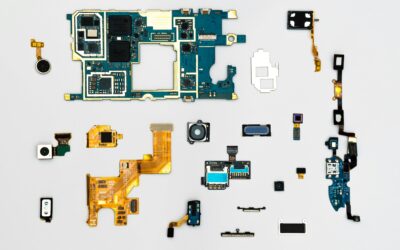Don’t Give Up on Your Money Goals
Don’t give up, you got this! George talks about how to make your money goals stick in the New Year and beyond.
Listen to us On
About the Episode
Don’t give up! It’s that time of year when we’re thinking about throwing in the towel on our resolutions and financial goals. And we’ve all been there.
George G talks about reframing how we think about goals and resolutions, and how to make them so you actually stick to them!
Did you get anything out of this episode? Do us a solid and leave a review:
https://ratethispodcast.com/alignedmoneyshow
Learn more and engage at MoneyAlignmentAcademy.com, Twitter, LinkedIn, Instagram, YouTube and Facebook.
Buy George G a coffee (he loves coffee)
https://www.buymeacoffee.com/lifeblood
Have George G speak
https://moneyalignmentacademy.com/speaking/
Financial literacy and wellness for individuals, families, and companies
https://moneyalignmentacademy.com/
Find George G’s books here
The Aligned Money Show is the podcast for Money Alignment Academy, copyright 2024.

George Grombacher
Host
Episode Transcript
This week’s letter, this week’s letter comes from Little Timmy. Little Timmy writes, Dear George Gee, is it easier to make more money or to live on less? Now to me, that is a great question, an important one that many of us have to grapple with. And I know that I certainly have grappled with that. But in answer your question, but the real question, the actual question is, how do you get ahead financially when you are stuck, actually stuck or you’re feeling stuck? And this is a great question. That’s maybe the perfect question because it’s the time of the year where many of us are throwing in the towel, pulling the ejection cord button, ripcord button, we are giving up on our goals and our resolutions is not a good thing. But that is kind of where we are right now coming into February. And I’m always I’m always curious what the sentiments of people are what we’re thinking where we are at. According to a fidelity study, the top three financial resolutions for 2024 are number one, save more money, 41% of people said that was a priority number two, pay down debt came in at 38%. And number three, spend less at 30%. So save more money, pay down debt, spend less. So based on that, that says we need to live on less? Or does it say we need to earn more? Both get us there, but saving more paying down debt spending less? Okay, so those the top three, but why are goals and resolutions so hard for us to stick to? But before I answer that one, let me answer the question, is it easier to earn more? Or is it easier to live on less when you find yourself living paycheck to paycheck, as I spent a good portion of my 20s doing, you know that it feels like you are trapped, walking through mud or sand or whatever, it’s just a slog, it is really hard when you are experiencing financial hardship, it follows you around everywhere, goes with you to work goes with you to the gym, it’s with you, when you’re with your kids and your family and everything else. It’s like a rain cloud just kind of following your route, it’s a bad place to be. So in order to break free of that cycle, something has to change. Things need to change in order for things to change. Things need to change. You know, this will intellectually know that. But this is an example of it sounds easy, but does hard for sure. So how do we find money? How do we find money? Where is it? Is it all around us? It’s everywhere? Well, it’s there if if we can dig? So that’s the question. Okay, I need more money. Can I earn more? Do I have the capacity, the potential to earn more money? Well, how do we do that? Well, you can take on another job. But I know plenty of people who are working multiple jobs. And there’s literally physically no way that time for them to work more jobs. So if that’s you, that’s not an option. But perhaps you could make a plan for pursuing a professional designation or get some kind of a new certification or just talk to the company that you’re working with and ask, Hey, I really am interested in doing an awesome job doing a better job. How can I What can I do to earn more money to be more valuable to the organization? Maybe there’s an opportunity there’s opportunities to earn money online in good ways that are that are all around us. It’s good economy, there’s plenty of ways to earn additional money. So if that’s an option, perhaps look at that. Can you live on less money and never liked talking about reducing lifestyle? It’s not something I’m into. But the reality is, if I am interested in getting ahead financially, I’ll that’s maybe the only option I can’t earn more money than my other option is how do I figure out how to get blood out of this stone? How do I figure out how to get more i less can all the platitudes and niceties in the world. Got to figure it out. But I’m stuck. I’m feeling stuck and need to do something and work for things To change, something needs to change. So how do we do that? Well, number one, I think it’s really important to have a reasonable and a healthy perspective about this says that listen up ego, we’re going to take a step back, I’m going to downsize a car, change where I live, I’m going to stop doing a reduced lifestyle in some form or five fashion. Not gonna do this forever, do it, I’m going to take this one step back, so that I will be in position to take many steps forward in the future. And whether that I have that glimmer, that glimmer of, okay, there’s an end date here, I’m not just putting in permanent austerity measures where I need to stop having fun and all the color from my life will go away, and I’ll be in just black and white, like in the old days. So that’s not what I want. That’s not what you want. What I want is to feel and enjoy financial peace of mind to stop worrying about money. So I’m going to take a momentary step back, get out of debt, get some savings going, start investing, learn how to do those things, gain the confidence that I need to move forward. And then I will be in position to add some of this stuff back in, if it’s still a value. To me, that’s an interesting byproduct of, of making changes, making cuts in, in increasing your discipline is that you will learn that, okay, I’m perfectly capable of doing these things. I can do hard things, I can make tough choices, I can I can do these things. And then maybe you find that you didn’t need a lot of those things you were doing, or it wasn’t really what you wanted in the first place, after all, and that’s something I want to circle back to. But that’s fundamentally it. So how do I do that? And I’m just going to tell you to do it without actually helping you to figure out how to do it, because that’s not helpful at all. So number one is we have to track our cash flow. It’s one of the most basic things, but it’s one of the easiest things to not do. This was 100% me, when I struggled with money, because I just ignored or avoided financial matters, we have to stare it right in the face, say, okay, here I am, in need to need to figure out how to live on less. So I need to really go through my finances and my cash flow with a fine tooth comb. So I need to know how much money you have coming in, down to the dollar. Do you know how much money you earn every month? Do you know how much money you spend every month, that’s a little trickier because some of your experiences or expenses are variable. And I totally get it. But certainly many of them are fixed. And we can know what that number is. But we want to get to as close to down to the dollar of knowing how much is coming in and how much is going out. And I don’t have a crystal ball. But I can look backwards, certainly. So go back for as long as it’s been since you’ve gone through all your different transactions and review all of them, you’re looking for things that shouldn’t be there, or things that you have the opportunity to potentially cut out again, not permanently, but temporarily, that is one of the keys here. So go through your review everything you’re looking for stuff that that shouldn’t be there or you could get rid of, and then then you make those cuts. The next thing is you have to keep a budget, you just have to keep a budget and all that is is a plan for your money. And that’s where we are sort of looking into the future because we’re making a plan says it might it’s probably not going to work out exactly the way that we want it to and stuffs gonna come our way that we don’t expect. It’s why they’re unexpected. But we’re positioning ourselves for success. So that’s what a budget will do. It’s a plan for our money. And then we project that out. And then we review it, review our budget, at the end of the month, say okay, how did we do? Well, we’re over budget here, we were under it there
and allows you to adjust but you are now more in control because you know, and then you make a plan, say okay, we were able to identify, you know, $100 or a couple $100 from making some cuts going through our cash flow, optimizing our spending. So what now is our plan? Well, we’ve got $5,000 in credit card debt. All right, we’ve got to enlarge the month that we can now dedicate to that. But it’s going to take a couple of years to get out. But now you know. And that’s going to give you confidence, it’s going to help you feel like you have a little bit of control over the situation. And you can you have the ability to feel in control. And I think that that is such an important thing. So those are some steps. Not going to be easy at all, but it will be worth it. That’s the thing about things that are of value is that they are hard. Things are easy. They are not a value. worthwhile. Things are hard, they’re a value. So back to goals. Why resolutions are so hard to stick to. I talk a lot about goal setting. And most importantly is that I talk about how I didn’t do it forever. And like I’ve intellectually understood since I was 10 years old, the importance the value of goals, having goals, setting goals, writing them down. But it took me until about 35 to actually do it, because I’m a human being. And that’s some of the things that we do is we just don’t do the things that we know that we’re supposed to do. very human. It’s a feature, not a bug, that and you look at goal setting, like the verdict is in, we know how important they are. We know how impactful they are. And if you don’t know that there is a very famous Harvard study that talked about MBA students, graduate students that they ran a survey, it’s that how many of you have goals, how many of them write them down, and at the end of it came out that the ones that wrote them down, were just exponentially more successful than the ones that had goals and way more successful than the ones that didn’t have any at all? So it’s just it’s true. It makes a lot of sense. But we have such a hard time with it. So when somebody is so obviously good for you, but I don’t do it. Why is it so hard? No. Maybe it’s a framing problem. And this is something I’m just kind of kicking around in workshopping. I don’t think it’s gonna stick or I just haven’t found the right term. But like, what is a different term for goals? What I landed on, just after a little bit of thinking and noodling, was it action, idea action process. What do you think? It action, let’s do some ideating. Put it towards action, Id action. Id action process, not goal said he wants to set goals? Do you want to ID action? Well, you get the idea. But how does it work? How does it action work? I mean, we think that goal setting is really, really crazy, weird process? Or maybe you don’t I don’t have any idea what you think about goal setting. I just know that we don’t do it. So step number one, desire, what is the thing that you want? Because if it’s not your goal, you can write it down. But your desire is not going to be strong enough to do the tough things or when things do get hard, then you will pull that ripcord like here we are at the end of January, and we are throwing in the towel on those New Year’s resolutions. So do you really want to do it? Step number two is Do you know how do you know how to do the thing that you want to do? Really hard to be successful doing something, if you have no idea, you don’t have the skills or the understanding that know how to do it. So you have to understand Step number three is you need to identify roadblocks, they’re already there. Okay, but they can come in a million different forms, we have limiting beliefs, all of us do, we have biases, and there’s just lots of head trash bouncing around in our heads, or our bodies or whatever, that are stopping us from doing the thing that we want. And this could be a psychological thing, it could be that you’re overweight, or whatever. So identify the roadblocks that are there. Step number four is, when something is a problem, we need to make it a process. But another way to say that is need to turn into a habit. So we then need to find out where this new thing is gonna fit. So if it is, we want to do a monthly, we’re interested in managing or reviewing our cash flow and doing a budget and reviewing our plants, then you need to find a day every month, that’s going to be your money meeting, money, date, whatever monthly money meeting, um, three, three times. You get it? So when will that? When can you have that meeting? And when can you have that meeting that’s going to stick. So the idea is that you just kind of piggyback on something that you always do. So Saturday morning, Sunday morning, Sunday, early afternoon, Saturday, early afternoon, just find a time where you do the same thing over and over again, religiously. And then you can put this at the beginning or the end of it. That’s a good way to actually make it stick. And then step five, steer right into the resistance. Don’t try to avoid it. It’s going to come up, you’re going to experience internal resistance, you’re going to experience external resistance, particularly if you’re making changes in your life. So hard. Change is hard because an object in motion tends to stay in motion. An object at rest tends to stay at rest. Unless it’s acted upon by an outside force, you know that you learned it and early on in your schooling. It’s just gonna happen so we have to expect it. And instead of avoiding it, instead of avoiding discomfort, or those uncomfortable feelings need to really steer into it. But I’m still I feel like I’m still putting the cart before the horse where goals really so hard to stick to. Don’t whose goals are they? On whose terms are you living Now we’ve become very very conditioned, desensitized to just clicking Accept on user agreements, and whatever terms or conditions, except Except I don’t have time to read this, I don’t care. I just want the thing. I just want the thing, accept, accept accept. Well, are you just clicking Accept on everything? On your life? With your goals? Have you already done that? I think the most of us have. I know that I had. I’m sure that I’m still am. So whose User Agreement? Whose terms are you living under? We’re all operating at some kind of system, under lots of different assumptions. And maybe it’s it’s the place you grew up your city, your town, the schools, you went to the workplace that you are in your religious, your spiritual community, your neighbors, what social media is telling you. There are norms and expectations, and just the way we do things, and this is what our family does. And that’s a long list. So, where were you under? Whose terms and conditions are you living under? I mean, what do you really want? We have one crack at this deal. This deal been life, one time around the track. So are you doing it on your terms? So I really I cannot advocate enough that you spend time thinking about that. Get out a pen and paper and just write down on His terms of my living? And and think about what what do you really want. And I break down goal setting into six different areas, family, community, career and money, wellbeing, personal development, peace of mind. So those are the six areas. Because it’s just it’s a little tricky to think globally. So it helps to have those prompts six different areas to think about. But I guess you could look at it a different way. Just think about what a great day looks like to what does a great day look like? What does a great Saturday look like? What does a great Wednesday look like? Where are you? Who are you with? What are you doing? Reality is that goal setting is a superpower. One that most of us squander, think about what we do when we’re setting the goal sitting down. And we are imagining any future that we want, literally any future. And then we’re making plans for bringing that desired future into our current reality. And then we execute on those plans. Went through those steps just a minute ago. So do I want this? Do I know how to do it? What are the roadblocks that are stopping me? Or will stop me from doing it? Where’s it going to fit? How do I fit it in? So it’s sustainable? It’s real. And then I steer into that resistance when I get punched in the mouth? Will my plan survive its collision with reality? So but so many of us, myself included? Do not take advantage of that superpower, but it’s right there. So you have it. Put it to work in your life. Is it easier to live on less? Or is it easier to earn more little Timmy? That’s the question. Probably a little bit of both.
And as we’re getting started, kind of put yourself in triage mode, say okay, things are not going the way that we want. This is not sustainable. To take a big step back. What do we need to do to find that financial security, get out of debt, start moving in the direction that we really want and figure out whose terms my living under start living on your terms. Remember, it’s never gonna be anybody that’s more interested in your financial success than you are. So act accordingly.
More Episodes
Beyond the Bank Balance: Cultivating a Soulful Relationship with Money
You don’t need to be a Wall Street shark or a personal finance guru to develop a healthy relationship with money. In fact, most of us start with little more than a jumble of beliefs and habits passed down from our families. But if you’ve ever found yourself stressed...
How Using AI Can Help You Gain Clarity Into Your Financial Future
In today's fast-paced, data-driven world, achieving financial clarity can feel like an overwhelming task. With numerous financial decisions to make—from budgeting and investing to retirement planning and debt management—it's easy to feel lost in the complexity of it...
How AI Can Help Improve Your Personal Finances
1. Smarter Budgeting and Expense Tracking AI-powered tools like Mint, You Need a Budget (YNAB), and PocketGuard can automatically categorize your expenses, track your spending in real time, and even alert you when you’re about to exceed your budget. These tools...
Trust and Confidentiality When Using AI as Your Financial Coach: Safeguarding Your Sensitive Data
In the digital age, artificial intelligence (AI) has revolutionized many aspects of our lives, including personal finance. AI-powered financial tools have become a go-to resource for budgeting, investing, debt management, and even retirement planning. But as more...
How AI Can Be Your Personal Financial Coach: Unlocking the Future of Financial Success
In today’s fast-paced world, managing your finances can feel overwhelming. With so many options for saving, investing, and budgeting, it can be hard to know where to start or how to stay on track. Fortunately, advances in technology—specifically Artificial...
How Technology and AI Are Benefiting Investors and Consumers in Securing Their Personal Financial Futures
In recent years, the rise of technology and Artificial Intelligence (AI) has profoundly transformed the financial landscape. These advancements have empowered investors and consumers to make more informed, efficient, and personalized decisions about their financial...
10 Things New Parents Should Be Thinking About Regarding Their Personal Finances
Becoming a parent is one of the most joyful and transformative experiences in life. However, it also brings new financial responsibilities and challenges. If you’re a new parent or expecting, it’s crucial to plan ahead to ensure your family’s financial security. Here...
10 Things Newlyweds Should Be Thinking About Regarding Their Personal Finances
Marriage marks a new chapter filled with excitement and partnership. While love may be the foundation, financial harmony is key to building a stable and happy life together. To set yourselves up for success, here are 10 essential financial topics that every newlywed...
Financial Tips for New Parents: Building Stability and Security for Your Growing Family
Becoming a parent is one of life’s most rewarding experiences, but it also brings significant financial challenges. From diapers to daycare, the costs add up quickly. Whether you’re a first-time parent or adding to your family, managing finances wisely is crucial for...
Join the show.
Interested in being on the show? Tell me a little bit more about you and what you’d like to talk about!














